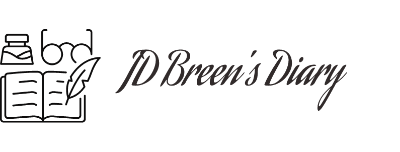The Quest for Truth

Atlanta, GA
December 20, 2021
Recent years have resurrected a rhetorical cudgel that despots have historically used to silence dissent.
Throughout history, but particularly since the “Progressive” Era, sanctimonious busybodies wishing to capture rhetorical high-ground have claimed the mantle of “science” to shield them from opposing perspectives in the arena of debate.
It’s self-righteous sophistry, yet alarmingly effective and disturbingly disarming. But it raises a valid question: what is “science?”
Fatuous slogans fester on urban bumper stickers and suburban lawns, proclaiming “I Believe in Science” and “Science is Real”, as if “science” is somehow synonymous with “truth.” These are the chants and choruses not of scientific pursuit, but of secular creed.
Science is not so much “truth”, as it is a quest for truth. More precisely, it’s the hunt for error…a practice of puncturing preconceived notions and poking holes in hypotheses, so that flawed assumptions can leak away. It’s a process, not a promise.
Science is less affirmation than interrogation; more refutation than proclamation. It’s not a mere aggregation of selective “data”, swirled in a political beaker to yield some superficial “answer.” It tempers piles of Baconian induction with a priori Thomistic deduction. No real scientist would be so stupid to assert that “the science is settled.” It is never “settled.”
Science is an expanding sea, stretching toward a receding horizon of infinite ignorance. And even were it to imply a “conclusion”, hard science can’t necessarily tell us what to do about it. That’s often a subjective value judgment, liable only to personal preference and individual conscience.
Let’s take just one example where “science” is regularly recruited to advance an agenda, and restrain how other people live their lives.
When I began my Environmental Engineering curriculum in college, “the science” had spent the previous decade-and-a-half propagandizing the phenomenon of “global cooling”. By the time I received my degree, we were supposed to be panicking about the imminent prospect of “global warming”.
Not that, in true scientific fashion, changing data couldn’t have warranted a contrary conclusion. But the confidence remained unwavering. Despite shifting almost instantaneously to an opposite outlook, skepticism remained off-stage. Was there no humility in this climatological play?
But curiously, the “solution” remained the same: more government control, fewer fossil fuels, less energy, subsidies for pet projects in favored industries, and a reduction in many productive activities that sustained the lives of several billion people. It’s almost as if the purpose of “the science” was to diagnose a disease that warranted a pre-determined prescription.
These days, many people conflate “climate” with “weather”, and pretend they can control either. Is there a difference? Well, yes. Meteorologically, temporally, and geologically, there is. But colloquially, it’s usually safe to say that “climate” is data that supports the prevailing BS, whereas “weather” is information that refutes it.
But even if we disregard the flawed models, cherry-picked dates, bad history, bogus assumptions, and blatant conflicts of interest sustaining contemporary climate “science”, common sense and other disciplines prompt obvious questions that are rarely asked.
Off the top of our head, let’s toss out a few simple ones:
Is the world warming? How do we know? By what measure? Are humans causing it? Is the effect harmful or helpful? According to whom? What is the proper planetary temperature? How do we know? Should anything be done to bring it about? Why? Who should do it? Why? What are the costs? Who will bear them? Are they worth it?
Where, even in this short list, does “climate science” end, and such pertinent considerations as economics, philosophy, religion, agriculture, and anthropology begin? Much as in the Covid debacle, climate “science” is monomaniacal. With the virus, only “case counts” matter. Regarding “the climate”, only temperature readings do.
But what of other sciences, and of sundry collateral considerations? As with the Covid “mitigation measures” (and often by the same charlatans), we are promised that the situation is too dire and too urgent to contemplate collateral effects. We can’t wait. We must act. Circumstances demand that we fall in line, and to have faith in what we are assured is the “scientific consensus” on such an elusive and illusive issue.
It’s majestically moronic. Except in politics, where power and funding inform all research, there is no such thing as “scientific consensus”. The very notion is contradictory, and ludicrous.
After the last two years, no rational person should still be able to utter the farcical phrase “follow the science” with a straight face. Yet actual science really is an ongoing search, down a trail that continues whether we follow it or not. The path is usually overgrown, occasionally cleared, but always misty, often misleading, and frequently forked.
Along this road, skepticism is our compass. Truth often lurks in dark crannies and hidden nooks that are easily missed. Like market prices, celestial physics, or natural law, it isn’t imperiously proclaimed. It’s humbly discovered, and constantly questioned. Answers are out there, to be inferred and interpreted by observing predictable processes in a universe divinely ordained.
To say “science is real” is a truism, and a straw man. Of course it’s “real.” So what? It’s no different than saying religion is real. Who ever denied that it was?
Claiming that someone “denies science” is an IQ test that was failed by the person leveling the charge. It’s an infantile trope from an insufferable ignoramus or an incorrigible imbecile.
It’s like accusing someone of being a climate “denier” or a Covid “skeptic.” These imputations are juvenile tactics to stifle debate rather than to pursue truth. But it does provide the valuable insight that the person making these mindless assertions isn’t worth taking seriously.
Among people with IQs above room temperature, the debate isn’t whether “science is real.” The more pertinent question in recent years, when so many seem to have forgotten the answer, is what science is.
To be “scientific” is not synonymous with being “right.” Heraclitus, Aristotle, and Averroes were often wrong, but they were rarely unscientific.
Real science doubts dogma. It challenges conjecture, tests premises, follows logic, and draws conclusions. But always in pencil, never in ink.
The search in endless, and the goal noble. We just need to be wary of those who eagerly claim to lead the quest.
JD



